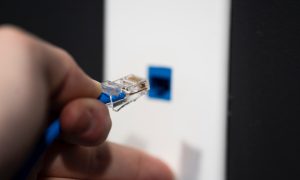Figuring out a Lady’s Body: Menopause Treatment and Care A lady’s body goes through various changes as it ages.
Ladies who are past the kid bearing age might see the menopausal stage as a lot to handle. Nonetheless, the weight that accompanies this change can be lifted with appropriate information about menopause treatment and care. Peruse more to learn about what menopause is and the medicines accessible for this condition.
When a woman enters menopause, she may begin to experience various symptoms. The first and most common of these is hot flashes, which occur as a sudden feeling of warmth in the upper chest. They can be uncomfortable, and they may last anywhere from two to four minutes. Some women may also experience heart palpitations and chills. Typically, hot flashes occur at least once per hour.
Menopause: Definition, causes, and side effects
Menopause is the time in a lady’s life that puts the last time frame on each month to month duration. This happens when a lady goes without encountering a feminine cycle in a year. Menopause is a change that happens normally in a lady’s body. Ladies might go through this change when they are past the age of 40 or 50.
Menopause is brought about by various variables that influence the body, for example,
- Malignant growth treatments like Chemotherapy and radiation treatment
- Decline in the normal creation of conceptive chemicals
- Expulsion of the ovaries through medical procedure
Chemotherapy and radiation treatment can influence the body’s regenerative framework by actuating menopause. Period and fruitfulness might be placed on a respite areas of strength for by utilized in chemotherapy, however this is generally brief. The capability of the regenerative framework can be impacted straightforwardly just when the method focuses on the ovaries.
Menopause works out easily when the body ages and chemicals that control the feminine time frame are being delivered by the ovaries in little amounts. This step by step occurs during the age of 30 to 40 years of age. Ladies who are in this a great time will encounter changes in the span and stream of their feminine cycle. When they arrive at their 50s, their feminine cycles reach a conclusion. There might be occasions while side effects connecting with menopause happen preceding the age of 40. This is called untimely menopause. This condition isn’t typical and might be brought about by an immune system illness or qualities.
Ovaries that are eliminated through a medical procedure, also called Oophorectomy, will prompt menopause totally as your ovaries are at this point not present to deliver estrogen and progesterone, which are the chemicals that are liable for directing the feminine cycle.
Side effects experienced by ladies might be unique. These include:
- Challenges with resting
- Changes in the completion of the bosoms
- Changes with mind-set
- Chills
- Dry skin
- Dryness in the vagina
- Acquiring of weight
- Hair diminishing
- Hot blazes
- Issues with resting
- Perspiring around evening time
The most widely recognized side effect among ladies is passing up their feminine period in certain months. They may likewise see that their feminine periods have become more limited in term. Note that ladies can in any case get pregnant despite the fact that they have missed a period.
Diagnosing menopause
One can perceive that a lady is going through the phases of menopause by the side effects alone. For the people who experience menopause side effects before the age of 40, it is ideal to talk with your primary care physician for legitimate direction as there are some ailments that likewise have side effects much the same as menopausal side effects.
Menopause treatment and care
The side effects achieved by the menopausal progress in a lady’s body are not long-lasting. The vast majority of the medicines should be possible at home and by making changes to way of life. Here are a few procedures to rehearse:
- Eat a nutritious and even eating regimen. Your body will require all the sustenance it can get as it goes through a rollercoaster of changes during your menopause progress. Load up your dinner plan with leafy foods. Skip food and drinks that are high in sugars and immersed fats or oils.
- Get away from hot glimmers by distinguishing factors that can set off the body to feel hot. This can go from food and drinks polished off, which are hot and zesty, to temperatures influencing a spot one is in or even pressure.
- Practice consistently.
- Getting adequate rest during this time is pivotal. To do this, make acclimations to your resting propensities and attempt to stay away from factors that can upset your rest schedule. In the event that you have a propensity for drinking liquor or caffeine, this ought to be kept away from.
- Unwinding procedures can assist with tending to mind-set changes. Practice profound breathing and reflection to quiet the brain and loosen up the muscles.
Also, further medicines like Chemical Substitution Treatment (HRT) and Phytoestrogen prescriptions can be thought of.
Complications
Certain difficulties might emerge after menopause. These are a few models:
- Cardiovascular sicknesses – The gamble of creating cardiovascular illnesses increments when the estrogen levels in the body drops.
- Osteoporosis – A lady’s bone thickness declines during the underlying years that follow menopause. Considering this explanation, the gamble of harming the hips, spine, and wrists are high.
- Sexual brokenness – Sexual action might be impacted as this can make inconvenience due vaginal dryness.
- Urinary incontinence – Menopause makes the urethra and vaginal tissues lose versatility causing urinary incontinence.
- Weight gain – Putting on weight rapidly after menopause is normal as the body’s digestion turns out to be more slow.
Assuming any of these confusions are influencing your personal satisfaction, it is strongly suggested that you talk with your gynecologist to look for treatment.
Talking with a gynecologist
Gynecologists are specialists having some expertise in ladies’ conceptive wellbeing. Assuming you really want direction and treatment during your menopause change, they are the best specialists that can offer the types of assistance that you really want.
During your underlying discussion, you can anticipate that your primary care physician should pose inquiries connecting with your clinical history. You will likewise be gotten some information about the side effects that you are encountering. It would be useful on the off chance that you come to your arrangement arranged with subtleties, for example,
- A rundown of all drugs you are taking, including natural and nutrient enhancements
- Family clinical history for ladies who might encounter perimenopause
- The side effects you experience, including their recurrence and seriousness
It is likewise critical that you can convey your concerns and worries to your gynecologist. List down questions that you might want to ask and furthermore note down your primary care physician’s proposals with respect to your condition.
Hot flashes
There are a number of menopause treatments available, but they are not always effective. A few simple lifestyle changes can help reduce hot flashes and prevent them from becoming too severe. For instance, it may be helpful to dress in layers, use a fan, or drink cold drinks. You may also wish to maintain a healthy body weight. Smoking, caffeine, and alcohol can also make hot flashes worse.
A doctor can diagnose your hot flashes and recommend the right menopause treatment. She can also suggest blood tests to check if you are in the menopausal stage. The most common menopause treatment for hot flashes is estrogen therapy. This treatment can help relieve symptoms, though it does carry some risks. It should be used in the shortest possible time frame and at the lowest dosage. In addition, women who are taking estrogen should consider taking a progestin to prevent bone loss.
Fortunately, there are many treatment options for hot flashes. You should discuss the options with your healthcare provider and revisit them annually. In the meantime, you can try wearing layers of clothing, drinking plenty of water, and going to a cooler room. You should also try to pinpoint the triggers of hot flashes, such as alcohol or spicy foods. Hot flashes may also be triggered by certain types of weather, a hot room, or even certain medications.
Night sweats
There are several treatment options for menopause-related night sweats. Some of these options include hormone therapy. This treatment can help women manage menopause-related night sweats and other symptoms. However, you must be aware of possible side effects. For example, estrogen replacement therapy should not be used in women with a history of breast cancer. Other treatment options include anticonvulsants, antidepressants, and clonidine.
Cognitive behavioral therapy can help treat night sweats and hot flashes. CBT can also help you improve your mood and quality of life. It is highly recommended to see a healthcare provider if you experience night sweats. Your healthcare provider can make a definitive diagnosis and recommend treatment options.
Other treatments for night sweats include hormone therapy, which is a treatment that replaces the depleted hormones in your body. It is effective for women experiencing night sweats, hot flashes, and vaginal dryness, and it can also help prevent uterine and colon cancer.
Irritability
Menopause is often a time of mood swings, but there are ways to manage your irritability and other menopause symptoms. For example, a diet rich in omega-3 fatty acids and protein can help you relax and feel more positive. It can also help you cope better with hot flashes and other menopause symptoms.
If you’re feeling irritable and overwhelmed during menopause, you may want to seek professional help. Your doctor may prescribe antidepressants or prescribe therapy to help you cope with the changes that are occurring in your body. However, you should remember that this is a natural part of the process and that it will pass. Treatment for menopause symptoms may also involve lifestyle changes and learning self-calming techniques.
Irritability during menopause is an emotional side effect of decreasing estrogen levels. While this is normal, it can also lead to feelings of rage or anxiety. Taking time to talk to your doctor about your symptoms will help you rule out other conditions that could be contributing to your irritability.
Heart palpitations
Heart palpitations during menopause can be an uncomfortable condition. While they are often temporary and will go away on their own, they can cause a lot of anxiety and stress. If you’re concerned, consult a doctor or menopause practitioner. They can offer treatment and suggestions to help you manage the condition.
Palpitations are caused by an imbalance between sodium and potassium in the body. This condition can also be caused by high-salt or sugary foods. Keeping a diary of your diet and the food you eat can help your doctor identify the causes of your palpitations. Increasing your magnesium and potassium intake may also help.
As mentioned above, women should seek medical care if their palpitations are severe or persist. However, if they are just occasional episodes, they can take measures to promote their heart health during menopause. For example, women should maintain a balanced diet and may consider taking nutritional supplements. Omega-3 fatty acids, found in oily fish, can help maintain normal heart function and blood pressure.
Insomnia
The good news is that menopause-related insomnia is treatable with proper menopause care and treatment. The key is to identify and address the root causes of your sleep problem, so that you can get the best sleep possible. This can be achieved by using over-the-counter melatonin or sleep aids or taking a prescription medication that has no addictive qualities.
Insomnia caused by menopause is common, and you may find that your symptoms are exacerbated by the fact that your ovaries are producing less estrogen. Luckily, there are several effective menopause treatments that address the root causes of your problem. You can also use complementary and alternative therapies to manage your symptoms.
First of all, it’s important to get at least seven hours of sleep per night. This may seem like a tall order, but menopause-related sleeplessness is often accompanied by hot flashes, which may awaken you in the middle of the night.
Hormone therapy
There are risks associated with hormone therapy, and women should consider them before starting the treatment. The risks depend on a woman’s overall health, her family’s health, and the duration of treatment. Doctors will discuss these risks and potential side effects, and will help determine if the benefits outweigh the risks.
There are several types of hormone therapy for menopause. One form is systemic estrogen, which is commonly taken in pill form and is absorbed through the skin. The other is low-dose vaginal estrogen, which is applied via creams or inserts. While these two types of hormone therapy can be used to treat symptoms associated with menopause, they have some important differences.
Systemic menopausal hormone therapy is a good choice for women who have vasomotor or genitourinary symptoms associated with menopause. Women without these symptoms may benefit from low-dose vaginal estrogen. Both estrogen and systemic hormone therapy have some risks. One of the risks of systemic hormone therapy is a slightly increased risk of blood clots or breast cancer.
Osteoporosis
Treatment for osteoporosis should begin as soon as possible after menopause, but it is often difficult to detect until a bone fracture occurs. Your doctor will likely recommend regular screenings to determine whether you are at risk of developing osteoporosis. These screenings measure your bone mineral density, which makes your bones strong and resilient. This number is calculated using a special machine called a dual-energy X-ray absorptiometry. Your doctor will assign you a T or Z-score based on this number.
Osteoporosis is a serious condition that can lead to fractures and significantly increases the risk of mortality and morbidity in older postmenopausal women. It is often a complication of menopause, as it is directly related to the deficiency of estrogen in the body. Additionally, advanced age, genetics, smoking, and being overweight can all contribute to osteoporosis risk. However, there are many measures that women can take to reduce their risk and maintain bone health.
Treatment for osteoporosis after menopause varies from person to person. For many women, estrogen is the most appropriate treatment. However, if you’re older and risky for fracture, you should consider taking a bisphosphonate like raloxifene.
Urinary incontinence
A woman experiencing urinary incontinence during menopause should seek medical treatment to control the symptoms. Treatment can include hormonal therapy and vaginal cream containing estrogen. There are also medicines to treat urge incontinence and overactive bladder. Besides medications, women can also use pessaries to hold the bladder in place.
While urinary incontinence is a common symptom of menopause, it should not be overlooked. The stigma that accompanies this condition has prevented many women from seeking help for urinary incontinence. However, advances in treatment have made urinary incontinence more manageable.
When women reach menopause, their bodies begin to produce less estrogen, resulting in decreased muscle strength in the pelvic floor. These weak muscles can no longer prevent urine leakage, which can lead to stress incontinence or full incontinence. Urinary incontinence is very common and affects the quality of life of many women.
Menopause and urinary incontinence can be caused by a number of reasons. Increasing age reduces the bladder’s capacity, while increased weight puts pressure on the bladder and surrounding muscles. Moreover, some women may have enlarged prostates, which may increase the risk of urinary incontinence. Prostate cancer can also lead to incontinence in some cases.
- Also Read: Kbm 25 Com Know The Latest Authentic Details!
- Also Read: Is My Derma Dream Legit? Authentic Review!
- Also Read: How to Watch Sp4r3 M3 gr34T l0rd? Know Details!











